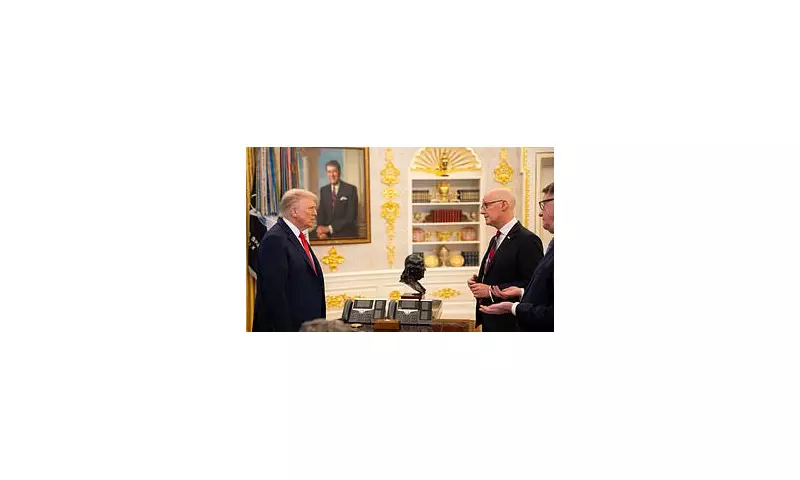
In an unexpected diplomatic coup, former US President Donald Trump and ex-UK Cabinet Minister Peter Mandelson have orchestrated a landmark deal that will see crippling American tariffs on Scotch Whisky slashed. The agreement, reportedly forged during a high-level meeting, promises to resuscitate a vital export industry for Scotland.
The meeting, which took place in a setting reminiscent of the Oval Office, brought together two of the most formidable political operators from either side of the Atlantic. Their discussions focused on resolving the bitter trade dispute that has hammered Scotch Whisky exporters since 2019.
A Lifeline for Scotland's Iconic Industry
The 25% tariff, imposed by the Trump administration during a row over aircraft subsidies, dealt a severe blow to the Scotch Whisky industry. Exports to the United States—the sector's most valuable market—plummeted, costing producers hundreds of millions of pounds and threatening jobs across Scotland.
This new agreement is poised to reverse that damage almost overnight. By significantly reducing these trade barriers, the deal will restore the competitiveness of Scotch Whisky in the American market, allowing distilleries to plan for growth with renewed confidence.
The Unlikely Negotiators
The pairing of Donald Trump and Peter Mandelson, often dubbed the 'Prince of Darkness' for his political shrewdness, is perhaps one of the most surprising aspects of this breakthrough. Their ability to navigate complex trade issues behind the scenes highlights the power of unconventional diplomacy.
Lord Mandelson's extensive experience in EU trade policy and Mr. Trump's continued influence within the Republican party proved to be a potent combination for breaking the deadlock that had persisted for years.
Implications for UK-US Trade Relations
This deal is being hailed as more than just a victory for whisky producers; it is a significant moment for broader UK-US trade relations. It demonstrates a pragmatic willingness to move past disputes and find mutually beneficial solutions, potentially paving the way for further cooperation on trade matters.
For the Scottish economy, the timing could not be better. The whisky industry is a cornerstone of rural employment and a key contributor to the national exchequer. This tariff reduction is expected to unlock investment, secure jobs, and provide a substantial boost to the wider supply chain, from farmers to glassmakers.
Industry leaders have welcomed the news with a sense of relief and optimism, anticipating a swift return to the record export levels seen prior to the trade war.





